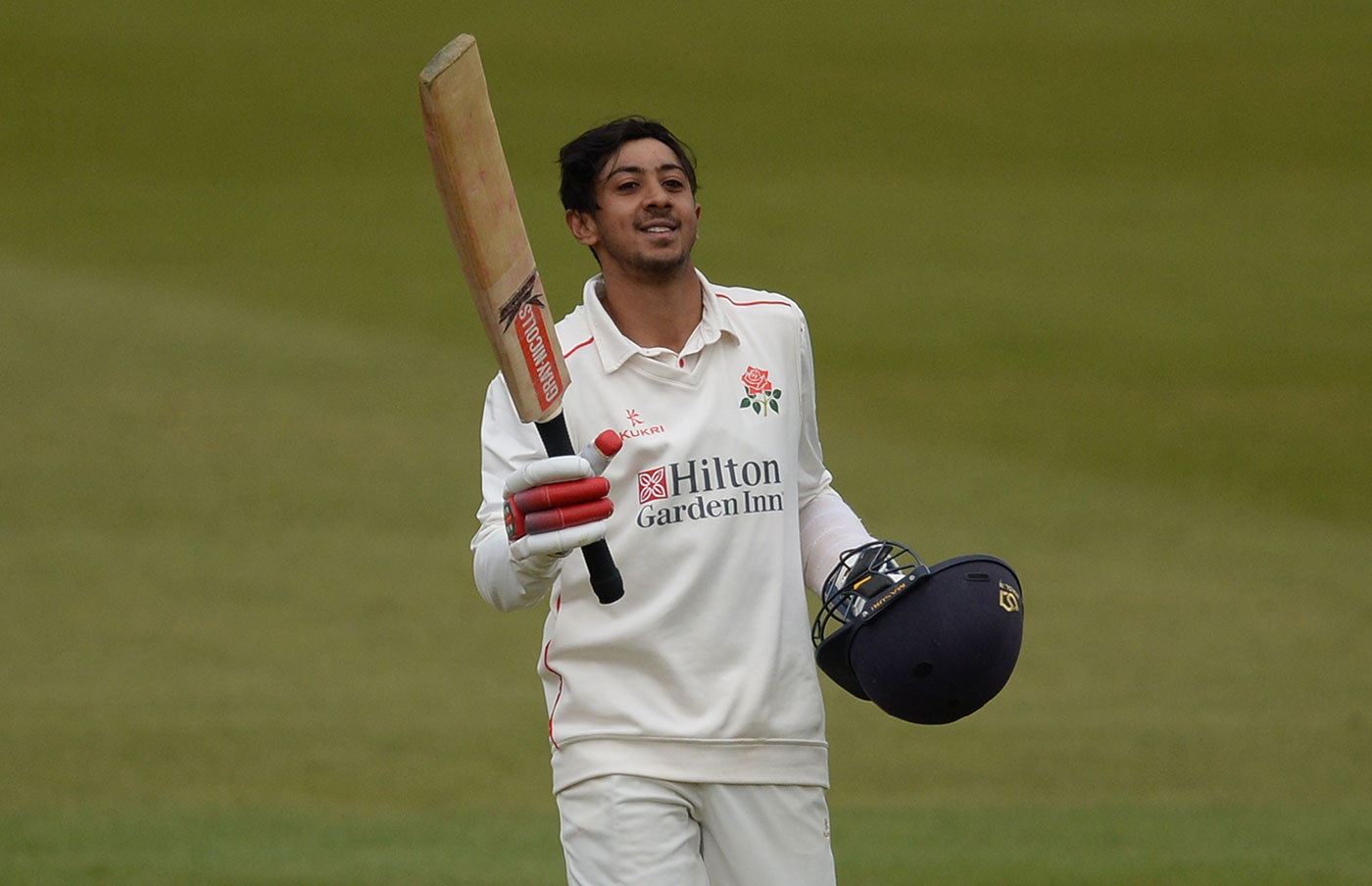
Lancashire 267 for 4 (Hameed 117, Jones 55, Jennings 52) lead Middlesex 265 (Eskinazi 75, Gubbins 55; Bailey 5-67, Anderson 3-41) by two runs
Form might be temporary but its departure can cause permanent infection. A host of cricketers have lost the ability to score runs or take wickets and taken refuge in the assurances of colleagues that this was merely a brief dip in their careers. Before long, though, they have stopped believing the comforting slogans and have consequently made it less likely they would ever again hear tunes of glory. In time they are found playing tennis and appearing in "Whatever Happened to…" features.
Last season Haseeb Hameed made 165 runs in 17 championship innings. Over the winter coaches he trusts in India told him his game was in good order. Very pleasant, of course, but no one could know whether he would ever again score serious runs against high-quality pace attacks containing, say, four international bowlers.
Well, we know now. For on a bright afternoon at Lord's, with the catkins still on the alders, Hameed rediscovered the composure and assurance that had amazed former Test cricketers in Manchester and Mohali some three seasons and a few lifetimes ago. His first century since August 2016 was more than a return to form; it was reclamation of treasured territory and the firmest of reminders that the talent which brought his colleagues onto the balcony at Rajkot was still in good order.
By the time he was dismissed for 117, caught and bowled by Dawid Malan when trying to pull a shortish ball, Hameed had hit 17 fours and had reached his century with a six which he smacked into the Grandstand off Toby Roland-Jones. Ed Smith, the national selector, had watched the innings and will surely have been impressed. Yet someone in the ECB should now sound a warning klaxon that it is far too soon to talk about Hameed returning to the England side. This is one century. It is still April and it is still the springtime of Hameed's career. He is, lest we forget, 22 years old.
But it still true that the Boltonian opener had looked good from the first delivery he faced. Rather than retreating into the meek quiescence which is so often the prelude to any batsman's dismissal, he sought to get forward and score runs. In Murtagh's fourth over there was a cover drive that recalled his enchanted summer of 2016; three balls later there was an even better stroke though midwicket off the front foot.
Throughout these early stages of Hameed's innings he was looking to play the ball rather than merely have it bowled to him. There was a scampered single, something rarely seen three years ago. There was more intent and a will to impose himself on the play. He was pro-active rather than pre-emptive, adjectives which may make him sound like a yoghurt as distinct from a nuclear attack, but are still valid when applied to his smooth movement onto the front foot. His 47 pre-prandial runs included nine fours and none of them had come off thin edges.
In the early afternoon he was roughed up a little by Steven Finn, who seemed to offer a few observations on his technique. But Hameed knew rather better than anyone else the shape his game was in. The cover drives, the creams through midwicket, the Fort Knox forward defensive and, just as importantly, the balls he left alone had given him all the evidence he needed. Only when Finn dug it in, and only a couple of times even then, did he look discomfited.
Yes, of course he had assistance from his colleagues. Most notably, this came from his opening partner, Keaton Jennings, who made 52 and put on 123 for the first wicket before he was tempted to poke at one outside the off stump from James Harris and nicked a catch to John Simpson. Brooke Guest, pressed into service as a No.3, made 17 before he was bowled through a gate of Brandenburgish dimensions by Tim Murtagh. The same bowler then tempted Glenn Maxwell into a booming drive and castled him off the inside edge.
Presumably troubled by these dismissals but clearly not disturbed by them, Hameed batted on, scoring only 34 runs between lunch and tea. Four overs after the resumption he drove Roland-Jones straight to the Nursery End boundary; the next ball was short and Hameed pulled it over the rope. His progress to a century was the first time he had rushed anywhere in 253 minutes; he had faced 167 balls and made maybe half a dozen errors.
In the evening session Rob Jones also batted well, reaching his own fifty and helping Dane Vilas establish what may turn out to be a very useful first-innings lead. But Jones knows whose name will be on the lips of most cricket lovers in pubs around Lord's this evening.
Of course, there may be those who believe that bringing the troubled state of Hameed's career to his attention inspired him to this day's triumph. That is surely a fine example of the post hoc ergo propter hoc fallacy. One thing, though, was made very clear by this innings: Hameed is, as his former colleague, Ashwell Prince, once said, born to bat.
He is, one might even say, a proper cricketer to his very fingertips.















 Phone: (800) 737. 6040
Phone: (800) 737. 6040 Fax: (800) 825 5558
Fax: (800) 825 5558 Website:
Website:  Email:
Email: 






